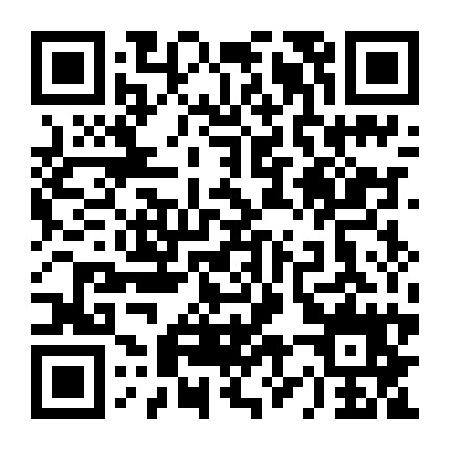英语考试的备考,参考历年真题是一个很重要的备考过程,今天新东方在线小编给大家整理了浙江大学2014年考博英语真题,帮助大家更好的备考,考博英语考试,一起来看看吧!
Section IV Reading Comprehension (20 marks, 1 mark each) Directions: There are four passages in this section. Each passage is followed by some questions or unfinished statements. For each of them there are four choices marked A, B, C and D. You should decide on the best choice and mark the corresponding letter on the ANSWER SHEET 1 with a single line through the centre.
Passage One
In the same way that a child must be able to move his arms and legs before he can learn to walk, the child must physiologically be capable of producing and experiencing particular emotions before these emotions can be modified through learning. Psychologists have found that there are two basic processes by which learning takes place. One kind of learning is called “ classical conditioning ”. This occurs when one event or stimulus is consistently paired with, or followed by, a reward or punishment; it is through classical conditioning that a child learns to associate his mother’s face and voice with happiness and love, for he learns that this person provides food and comfort. Negative emotions are learned in a similar fashion.
The second kind of learning is called “operant conditioning”. This occurs when an individual learns to do things that produce rewards in his environment and learns not to do things that produce punishments. For example, if a mother always attends to her baby when he cries and cuddles him until he is quiet, she may teach him that if he cries he will get attention from mother. Thus, the baby will learn to increase his crying in order to have his mother more.
Every day, we grow and have new experiences. We constantly learn by reading, watching television, interacting with some people, and so forth. This learning affects our emotions. Why is it that we learn to like some people and dislike others? if a person is nice to us, cares about us, we learn to associate this person with positive feelings, such as joy, happiness, and friendliness. On the other hand, if a person is mean to us, does not care about us, and even deliberately does things to harm us, we learn to associate this person with negative feelings, such as unhappiness, discomfort, and anger.
56. The author’s main purpose in writing the passage is to .
A. teach children how to learn to produce and experience certain emotion
B. give the general reader an account of two basic kinds of learning
C. give parents some advice on how to modify their children’s emotions through learning
D. discuss with psychologist how positive and negative feelings are produced
57. If your jokes often find already echo in a person, you will learn though that telling jokes to this person is fun, and you will try with greater efforts to be humorous in his presence.
A. classical conditioning B. operant conditioning
C. neither of them D. some other sorts of conditioning
58. If a child is bitten or startled several times by a dog, he may learn to associate furry animals with pain or startle and thus develop a fear of furry animals. This is a typical example of learning through .
A. classical conditioning B. operant conditioning
C. both of them D. neither of them
59. In the third paragraph, the author is .
A. discussing how we grow and have new experiences every day
B. talking about learning to modify emotions through operant conditioning
C. concentrating on learning by reading, watching television, interacting with people, and so on
D. using examples to further illustrate learning through classical conditioning
60. In the following paragraphs the author will most probably go on to discuss •
A. definitions of positive feelings and negative feelings
B. the third kind of learning
C. further examples of learning through operant conditioning
D. none of the above
考博必备!历年真题及答案
考博精品好课,就选新东方!
本文关键字: 考博英语真题

 资料下载
资料下载
【必看】考博英语词汇10000例精解
发布时间:2020-09-02关注新东方在线服务号
回复【10000】免费获取
医学考博英语作文核心基础词汇整理
发布时间:2020-04-15关注新东方在线服务号
回复【医学考博】获取
医学考博英语阅读理解练习资料
发布时间:2020-04-15关注新东方在线服务号
回复【医学考博】获取
法学考博英语高频词汇word版
发布时间:2020-04-15关注新东方在线服务号
回复【医学考博】获取
医学博士英语统考真题及解析
发布时间:2019-12-26关注新东方在线服务号
回复【考博真题】获取
全国医学博士外语统一考试真题
发布时间:2019-12-26关注新东方在线服务号
回复【考博真题】获取
中科院考博英语复习备考实战经验分享
发布时间:2019-12-26关注新东方在线服务号
回复【考博经验】获取
中科院考博英语真题练习资料
发布时间:2019-12-26关注新东方在线服务号
回复【考博真题】获取

关注新东方在线服务号
关注新东方在线服务号,
免费获取考博必看干货资料

 推荐阅读
推荐阅读
沈阳工业大学2022年博士研究生招生考试英语真题B卷
来源 : 沈阳工业大学 2022-12-26 16:19:18 关键字 : 沈阳工业大学2022博士英语真题
沈阳工业大学2022年博士研究生招生考试英语真题A卷
来源 : 沈阳工业大学 2022-12-26 16:18:19 关键字 : 沈阳工业大学2022博士英语真题
沈阳工业大学2021年博士研究生招生考试英语真题B卷
来源 : 沈阳工业大学 2022-12-26 16:09:06 关键字 : 沈阳工业大学2021博士英语真题
沈阳工业大学2021年博士研究生招生考试英语真题试卷A卷
来源 : 沈阳工业大学 2022-12-26 16:07:31 关键字 : 沈阳工业大学2021博士英语真题
沈阳工业大学2020年博士研究生招生考试英语真题试卷
来源 : 沈阳工业大学 2022-12-26 16:04:42 关键字 : 沈阳工业大学2020年博士英语真题


 考博好课推荐
考博好课推荐
基础薄弱,备考迷茫,送纸质资料
价格 : ¥2280元
资深教师,教学简明,直接有效!
价格 : 0元
 资料下载
资料下载
关注新东方在线服务号
回复【10000】免费获取
关注新东方在线服务号
回复【医学考博】获取
关注新东方在线服务号
回复【医学考博】获取
关注新东方在线服务号
回复【医学考博】获取
关注新东方在线服务号
回复【考博真题】获取
关注新东方在线服务号
回复【考博真题】获取
关注新东方在线服务号
回复【考博经验】获取
关注新东方在线服务号
回复【考博真题】获取

 阅读排行榜
阅读排行榜
 相关内容
相关内容